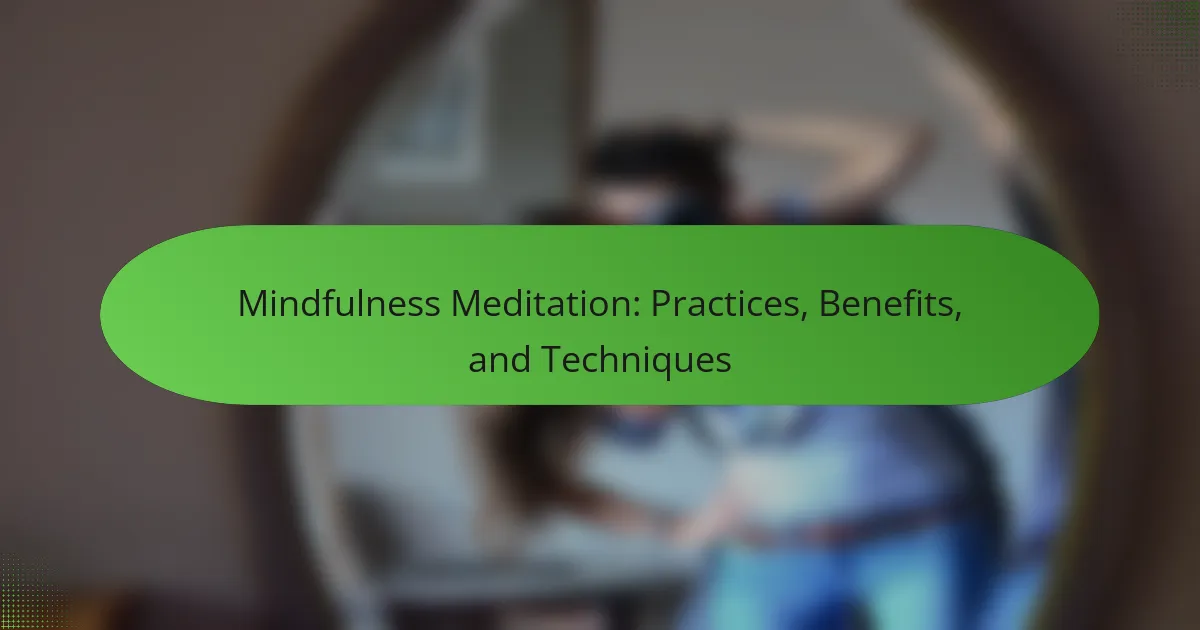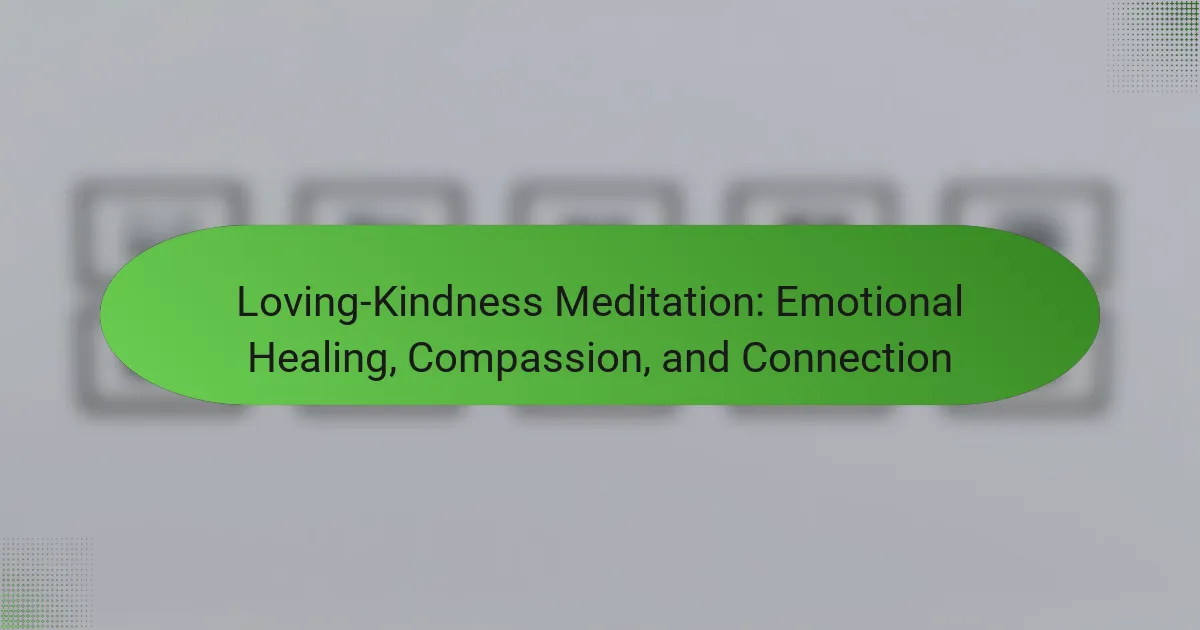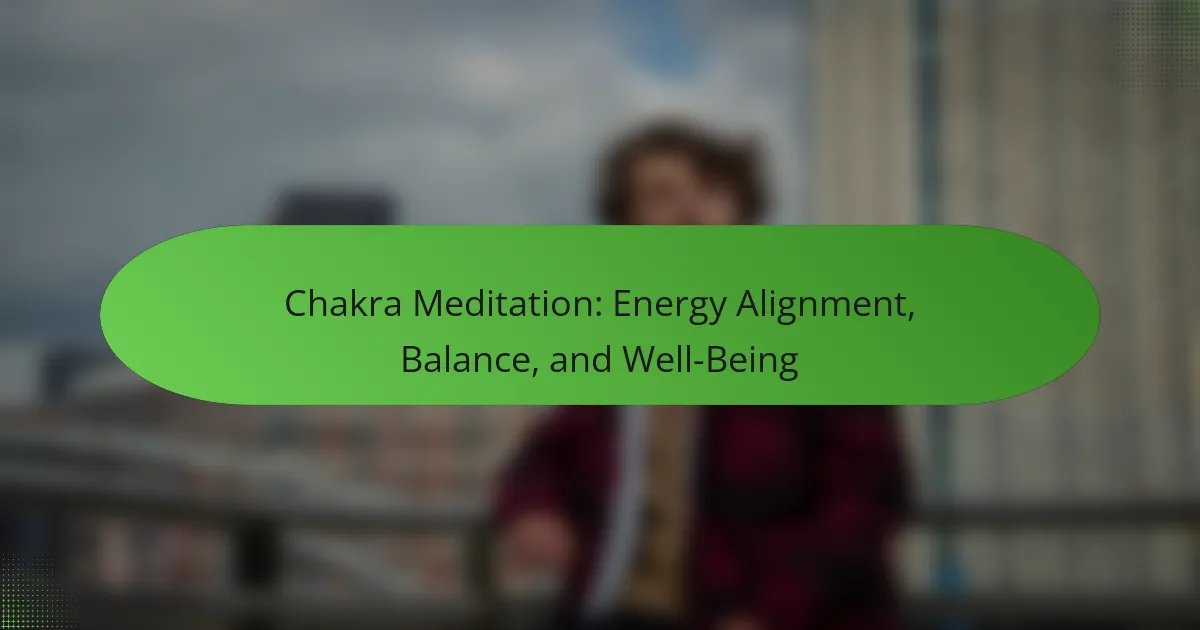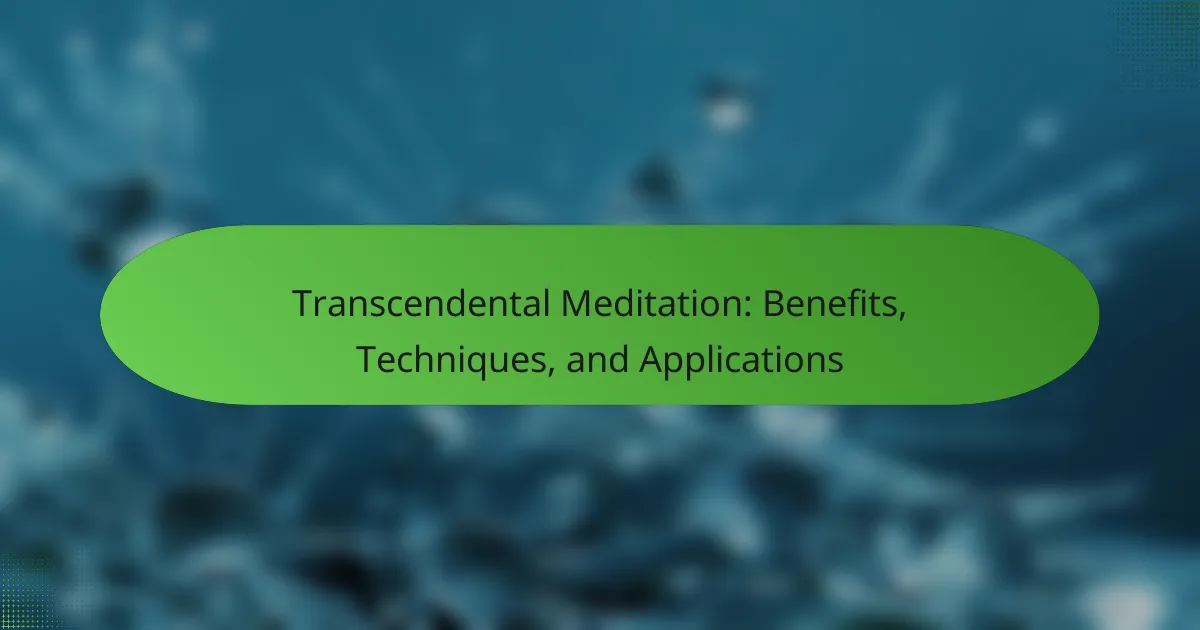Mindfulness meditation is a powerful practice that encourages individuals to cultivate awareness and presence in their daily lives. By incorporating various techniques tailored to personal preferences, this practice not only enhances mental clarity and emotional well-being but also contributes to significant physical health benefits. Engaging in mindfulness meditation can lead to reduced stress, improved cognitive functions, and an overall sense of well-being.
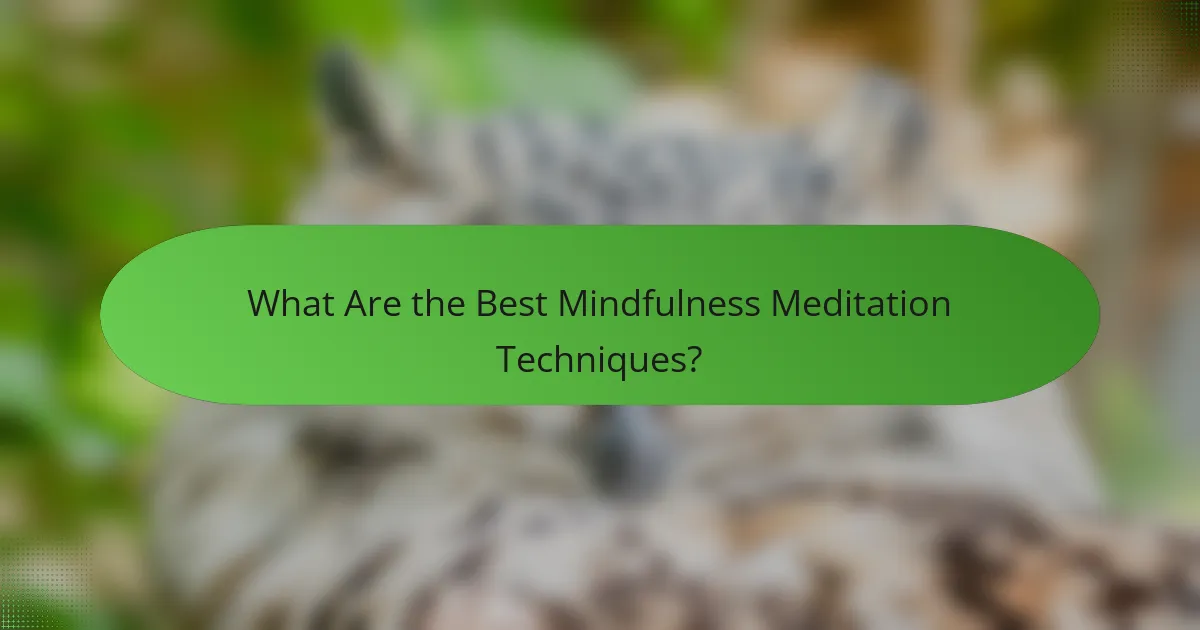
What Are the Best Mindfulness Meditation Techniques?
The best mindfulness meditation techniques include various practices that help individuals cultivate awareness and presence in the moment. These techniques can be tailored to personal preferences and lifestyles, making them accessible for anyone looking to enhance their mindfulness journey.
Guided Meditation
Guided meditation involves following a narration or audio that leads you through the meditation process. This technique is particularly beneficial for beginners, as it provides structure and direction, helping to focus the mind and reduce distractions.
Many apps and online platforms offer guided sessions ranging from a few minutes to over an hour. Choose a session that fits your schedule and comfort level, and consider exploring different themes such as relaxation, stress relief, or self-discovery.
Body Scan
The body scan technique encourages awareness of physical sensations throughout the body. By mentally scanning from head to toe, practitioners can identify areas of tension and promote relaxation.
To practice, lie down comfortably and focus on each body part sequentially, noticing any sensations without judgment. This technique can take anywhere from 10 to 30 minutes and is effective for enhancing body awareness and reducing stress.
Breath Awareness
Breath awareness meditation centers on observing your breath as it naturally flows in and out. This technique helps anchor your attention and can be practiced anywhere, making it highly versatile.
Start by sitting comfortably and focusing on your breath for a few minutes. If your mind wanders, gently redirect your focus back to your breathing. Aim for sessions of 5 to 15 minutes, gradually increasing the duration as you become more comfortable.
Walking Meditation
Walking meditation combines mindfulness with movement, allowing you to cultivate awareness while walking slowly and deliberately. This practice can be especially grounding and is ideal for those who find sitting still challenging.
To practice, find a quiet space where you can walk back and forth. Focus on the sensations of your feet touching the ground and the rhythm of your breath. Sessions can last from 10 to 30 minutes, depending on your preference.
Loving-Kindness Meditation
Loving-kindness meditation, or Metta, involves generating feelings of compassion and love towards yourself and others. This technique fosters positive emotions and can enhance your overall well-being.
Begin by silently repeating phrases that express goodwill, such as “May I be happy, may I be healthy.” Gradually extend these wishes to loved ones, acquaintances, and even those with whom you have difficulties. Sessions typically last 15 to 30 minutes, promoting a sense of connection and empathy.
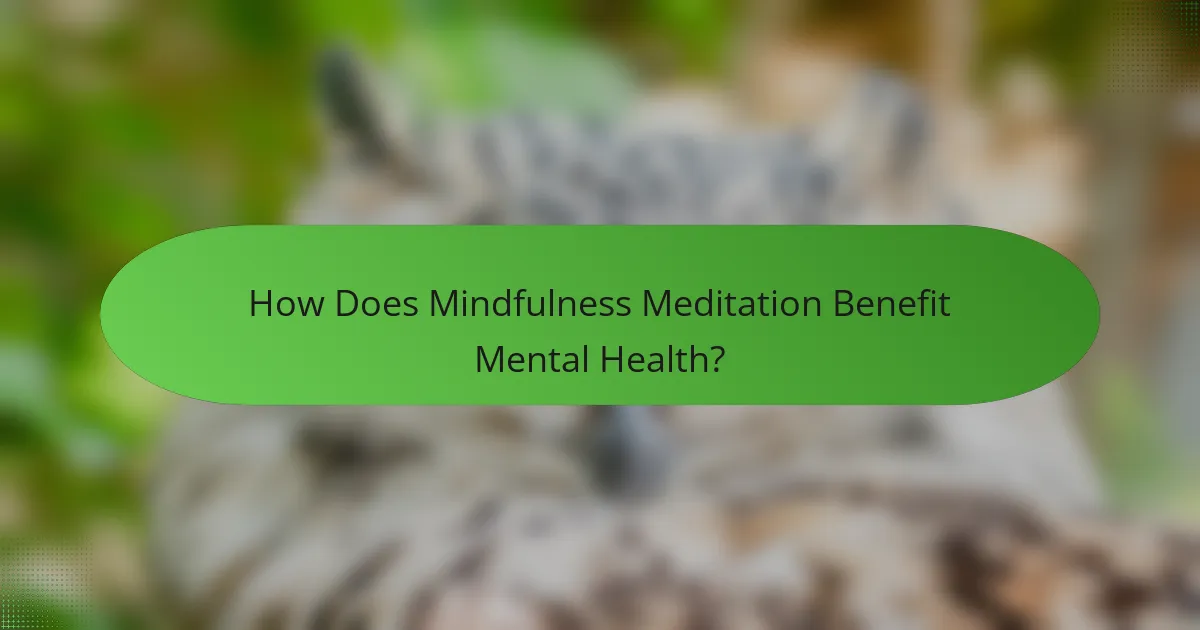
How Does Mindfulness Meditation Benefit Mental Health?
Mindfulness meditation offers significant benefits for mental health by promoting awareness and acceptance of the present moment. This practice can lead to reduced stress, improved emotional well-being, and enhanced cognitive functions.
Reduces Anxiety
Mindfulness meditation helps reduce anxiety by encouraging individuals to focus on the present rather than worrying about the future. Techniques such as deep breathing and body scanning can shift attention away from anxious thoughts, leading to a calmer state of mind.
Regular practice can lower anxiety levels over time, with many individuals reporting noticeable improvements after just a few weeks. Aim for sessions of 10-20 minutes daily to experience these benefits effectively.
Improves Focus
Practicing mindfulness meditation enhances focus by training the mind to concentrate on a single point of attention. This can be particularly beneficial in today’s fast-paced environment, where distractions are abundant.
Engaging in mindfulness exercises, such as focusing on breath or a specific sound, can improve attention span and cognitive clarity. Over time, this can lead to better performance in tasks requiring sustained concentration.
Enhances Emotional Regulation
Mindfulness meditation fosters emotional regulation by helping individuals observe their thoughts and feelings without judgment. This awareness can lead to healthier responses to emotional triggers, reducing impulsive reactions.
Practicing techniques like loving-kindness meditation can cultivate compassion and empathy, further enhancing emotional resilience. Consistent practice can help individuals manage their emotions more effectively, leading to improved relationships and overall well-being.
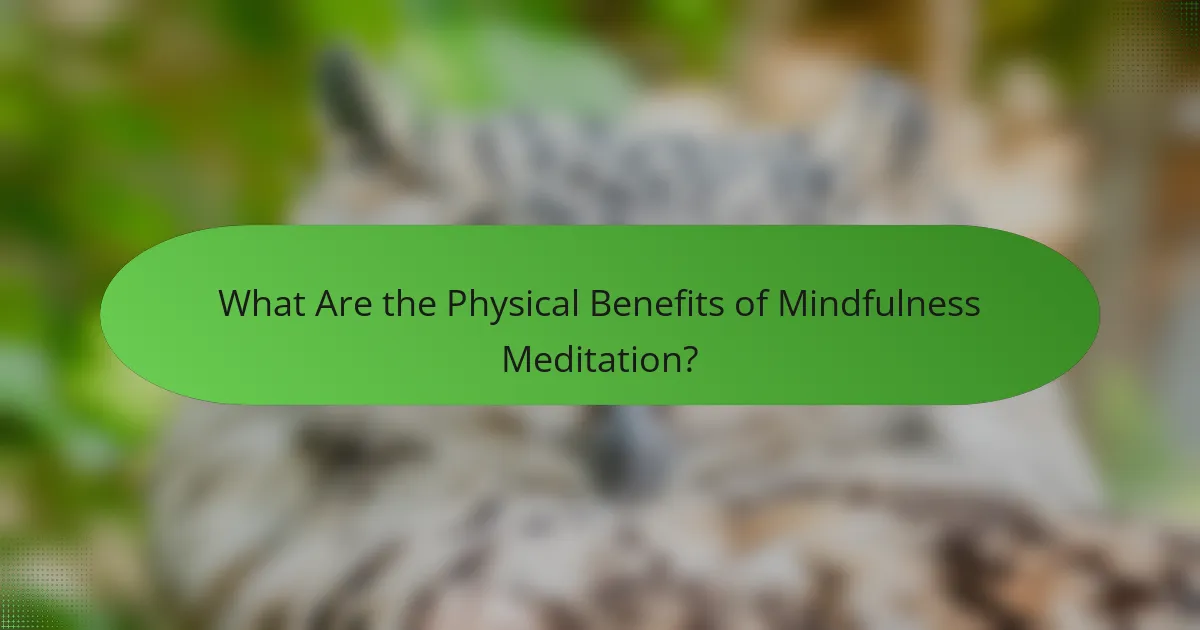
What Are the Physical Benefits of Mindfulness Meditation?
Mindfulness meditation offers several physical benefits, including reductions in stress-related health issues and improvements in overall well-being. Regular practice can lead to significant changes in bodily functions, enhancing both mental and physical health.
Lower Blood Pressure
Mindfulness meditation can help lower blood pressure by promoting relaxation and reducing stress. When practiced consistently, it may lead to a decrease in heart rate and improved circulation, which are crucial for maintaining healthy blood pressure levels.
To achieve this benefit, aim for daily sessions of 10-20 minutes. Techniques such as focused breathing and body scans can be particularly effective. Monitoring your blood pressure regularly can help you track improvements over time.
Improved Sleep Quality
Practicing mindfulness meditation can enhance sleep quality by calming the mind and reducing anxiety. This practice encourages relaxation, making it easier to fall asleep and stay asleep throughout the night.
For better sleep, consider meditating in the evening before bedtime. Techniques like guided imagery or progressive muscle relaxation can help prepare your body for rest. Aim for a consistent routine to reinforce healthy sleep patterns.
Enhanced Immune Function
Mindfulness meditation may boost immune function by reducing stress hormones that can weaken the immune response. Regular practice has been linked to increased levels of antibodies and improved overall health.
To support immune health, incorporate mindfulness into your daily routine, focusing on breath awareness or loving-kindness meditation. Engaging in these practices for as little as 15 minutes a day can contribute to better immune system performance.
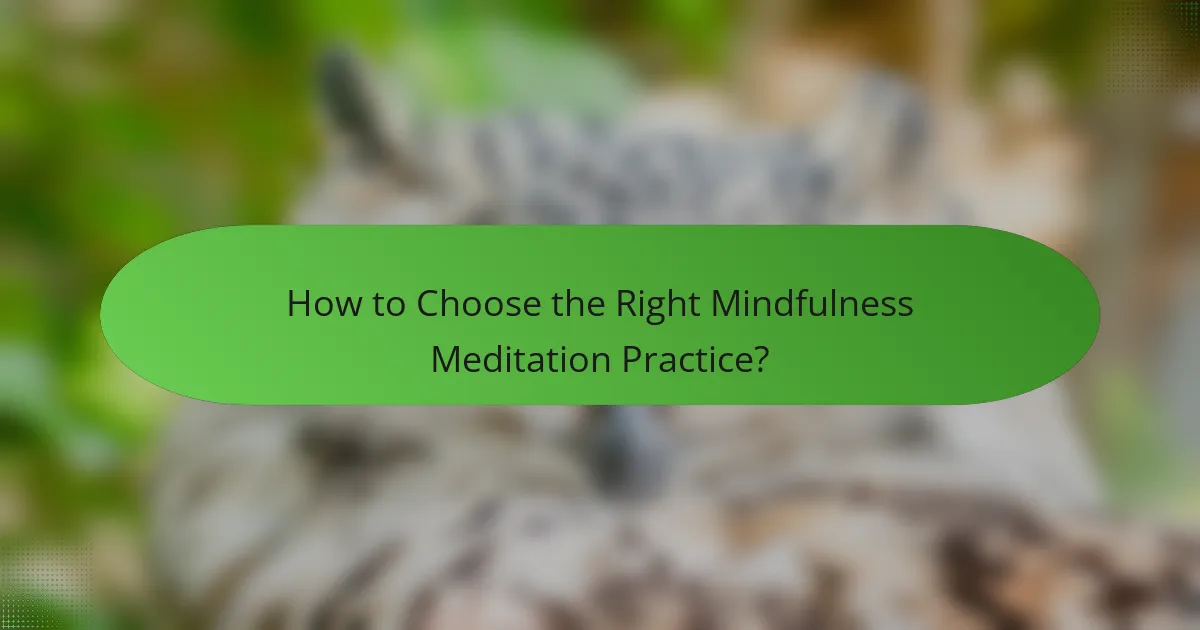
How to Choose the Right Mindfulness Meditation Practice?
Selecting the right mindfulness meditation practice involves understanding your personal goals, experience level, and the time you can dedicate. By evaluating these factors, you can find a practice that resonates with you and fits seamlessly into your lifestyle.
Consider Your Goals
Your goals are crucial in determining the most suitable mindfulness meditation practice. Whether you aim to reduce stress, enhance focus, or cultivate self-awareness, different techniques cater to various objectives. For example, if stress relief is your priority, practices like guided imagery or body scan may be beneficial.
It can be helpful to write down your goals and reflect on what you hope to achieve through meditation. This clarity will guide you in selecting a practice that aligns with your intentions.
Assess Your Experience Level
Your experience level with meditation plays a significant role in choosing the right practice. Beginners might benefit from structured sessions, such as guided meditations or apps that provide step-by-step instructions. More experienced practitioners may prefer silent meditation or advanced techniques like loving-kindness meditation.
Consider starting with a few introductory sessions to build a foundation before exploring more complex practices. This approach allows you to gradually deepen your understanding and comfort with meditation.
Evaluate Time Commitment
Time commitment is a practical consideration when selecting a mindfulness meditation practice. Determine how much time you can realistically dedicate each day or week. Many effective practices can be done in as little as 5-10 minutes, making it easier to incorporate them into a busy schedule.
Creating a consistent routine, even if it’s brief, can lead to greater benefits over time. If you find you have more time on certain days, consider longer sessions or different techniques to enhance your practice.
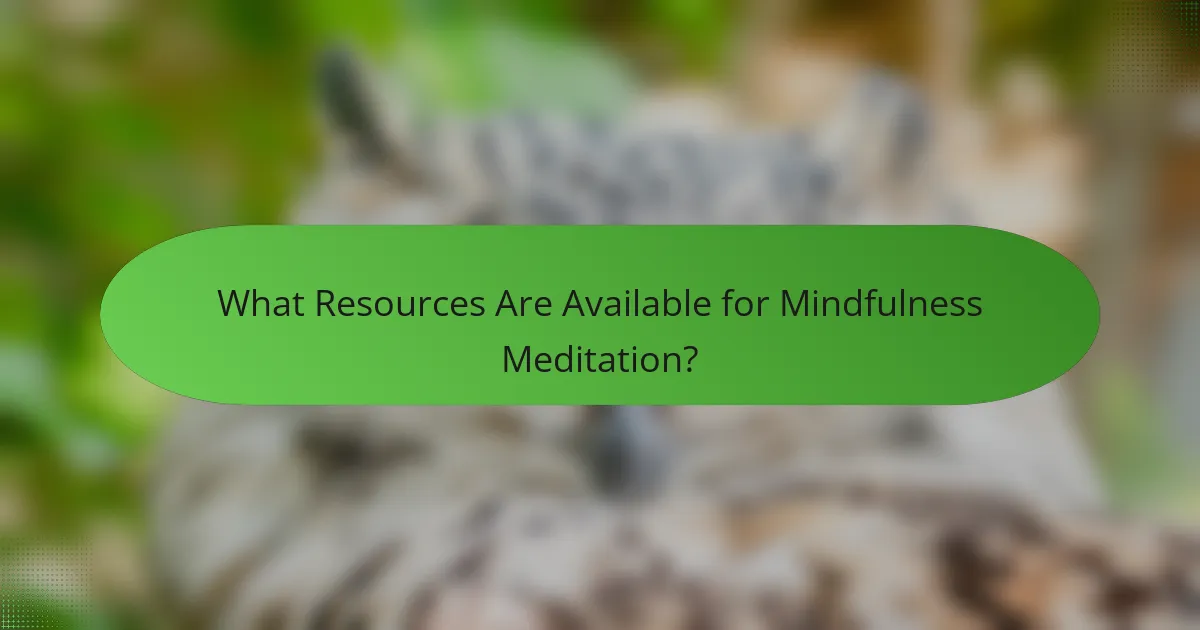
What Resources Are Available for Mindfulness Meditation?
Various resources are available for mindfulness meditation, including apps, books, and online courses. These tools can help beginners and experienced practitioners alike to deepen their practice and enhance their understanding of mindfulness techniques.
Apps Like Headspace
Apps like Headspace provide guided meditation sessions that cater to different needs, such as stress reduction, sleep improvement, and focus enhancement. These platforms often include a variety of meditation styles and lengths, making it easy to fit mindfulness into a busy schedule.
When choosing an app, consider factors like user interface, content variety, and subscription costs. Many apps offer free trials, allowing users to explore features before committing to a subscription. Popular options include Calm, Insight Timer, and 10% Happier, each with unique offerings and community features.
To maximize the benefits of these apps, set aside a consistent time each day for practice, even if it’s just a few minutes. Regular engagement can lead to significant improvements in mental well-being and mindfulness skills over time.
